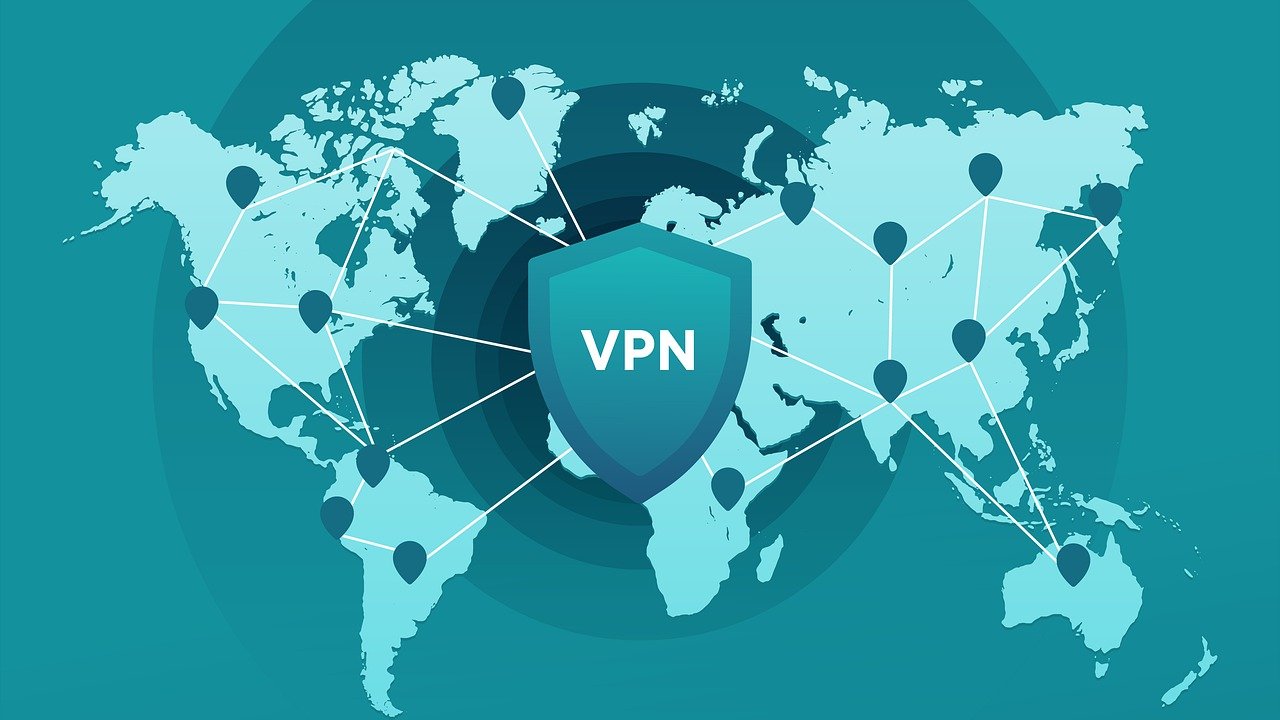How to choose and set up a business VPN
With options galore, finding the right VPN for your business can be a demanding task

Sign up for breaking news, reviews, opinion, top tech deals, and more.
You are now subscribed
Your newsletter sign-up was successful
In today’s insecure cybersecurity climate and increased popularity of remote work, setting up a VPN for your business is critical. It might not be as thrilling as buying a new marketing tool or as straightforward as upgrading your software, but it is an absolute must-have.
So, how do you dip your toes into the ocean of VPN solutions out there and pick the one that is an ideal fit for your team and customer base? Here is a cheat sheet to make the search and setup process a breeze.
Secure your business with UTunnel VPN
UTunnel simplifies creating and deploying secure site-to-site VPNs, ensuring Zero Trust Application Access (ZTAA) and Network Access (ZTNA). Your business can enjoy advanced features like Mesh Networking and OneClick Access.
Figure out what you need
The right type of VPN for you largely depends on the size and scope of your business.
Therefore, simplicity is king for small businesses. Think plug-and-play solutions that don’t require a major IT team to manage and maintain. Its setup should be easy, the dashboard is user-friendly, and it needs to have enough basic features to keep your data secure without draining your budget.
That said, if you are running a company with multiple branch locations, satellite operations, elaborate networks, or highly sensitive data, then you are going to need a VPN solution with superior capabilities. This means advanced encryption, dedicated IP addresses, and remote access support for various devices.
Also, consider the necessary security requirements. This means establishing whether you want or need an on-premises (point-to-point VPN) or cloud-based VPN platform for your business. Solutions exist to suit either preference, with the latter offering more options and better control.
Investigate available options
Start with the provider’s reputation, how long it has been in business, what its specialty is, and if it has clients in similar industries to yours. Reading reviews (both the good and not-so-glowing ones) can give you a better insight into how reliable it is. For example, if there are complaints of unexpected charges or overly slow support, this might be a red flag.
Next, scratch under the surface. Even if technology isn’t your forte, knowing the basics about security, encryption (like AES-256 versus AES-128), protocols (L2TP/IPsec, OpenVPN, SSTP, PPTP, IKEv2, WireGuard), server locations, and device compatibility is enough to help you figure out if a VPN has what it takes.
Look for basics - and then some
When it comes to selecting the best business VPN, some fundamentals are non-negotiable. They include strong encryption, reliable data protection, and secure remote access. However, you can’t stop here.
Other good-to-have capabilities are a kill switch that automatically blocks your traffic if your internet or VPN suddenly drops, as well as DNS leak protection preventing your traffic from going anywhere other than your chosen DNS.
Then, there is the matter of performance. You do not want a VPN that slows your internet speed more than is absolutely necessary for it to work right. So, opt for a solution that puts security as its top priority but also offers solid speeds to handle the data load as required by your operations.
Look at VPNs that offer multiple simultaneous connections, geographically diverse and scalable connectivity options, and robust security.
Keep compliance in mind

Compliance is fundamental for businesses that operate in highly regulated industries and handle sensitive data (like healthcare and finance). Adhering to legislation like HIPAA, GDPR, and CCPA is not optional- failing to meet them could lead to hefty fines and a tarnished reputation.
A proper VPN vendor should take your mind off these concerns, providing tools for your specific industry’s requirements. Take healthcare as an example - clinics in this line of business have to use VPNs that support HIPAA compliance, while any company with European clients should focus on GDPR-compliant privacy services.
Plan for the future
Should your operations grow beyond their current scope, be it in terms of adding more employees, locations, or customers, your VPN should be able to keep up. So pick one that will allow you to add features and expand capabilities as needed.
Furthermore, observe the pricing plans’ particulars - is the service charged depending on the number of users, devices, components, contract duration, or something else entirely? This will allow you to understand and plan your budget accordingly.
Test drive before committing

A VPN might seem great on paper, but it is important to take it for a test run before subscribing to a long-term commitment (with prices to match). It is like trying on a new pair of sneakers - you can only know if they truly fit or can handle your demands after you have taken a walk in them.
With this in mind, many VPN providers offer a free trial or money-back guarantee period (or even both). Use this time to check how easy it is to install and configure, whether it plays well with your other software, and if the customer support team is responsive enough to your liking.
Also, you will want to stress-test the VPN in real-life industry conditions. This means looking at how its speeds hold up when connecting and operating during peak hours and when switching between different locations (especially important for remote teams and international clients).
Check how fast your team members can learn the ropes - is it easy-breezy or an obstacle course? A simple and intuitive dashboard can mean a lot in situations when time is of the essence or you have employees with different levels of tech expertise.
Setting it up
First, prepare your networks by removing any legacy VPN software and ensuring your routers and other devices are compatible with your chosen service. The next step involves installing the VPN on all the devices that will connect to it, such as computers, phones, and/or tablets.
Now, it is time to set up the security parameters and preferences and test the VPN connection. You might need to fine-tune the performance by choosing the protocol and additional details, such as proxy server selection (automatic or manual), TCP/IP settings, or DNS servers best suited to your company’s requirements.
With some VPNs, this process might differ depending on the device (might be a bit more demanding when setting up on a router), app, and/or operating system. If you need any assistance along the way, your provider of choice should be readily available to jump in or offer a quick setup wizard guide.
Finally, check how the VPN performs on the employees’ devices. As you are doing this, make certain either IT support is on the phone or online or otherwise available to troubleshoot potential problems or conflicts with VPN installation or use.
Final thoughts
Choosing a good business VPN might seem daunting at first, but with a bit of planning and research, and perhaps some expert assistance when needed, it is entirely doable. Start with a crystal-clear understanding of your company’s and industry’s needs, do some legwork, and test drive your top selections before committing - and you will have nothing to worry about.
TechRadar Pro created this content as part of a paid partnership with UTunnel. The content of this article is entirely independent and solely reflects the editorial opinion of TechRadar Pro.
Sign up to the TechRadar Pro newsletter to get all the top news, opinion, features and guidance your business needs to succeed!
Sead is a seasoned freelance journalist based in Sarajevo, Bosnia and Herzegovina. He writes about IT (cloud, IoT, 5G, VPN) and cybersecurity (ransomware, data breaches, laws and regulations). In his career, spanning more than a decade, he’s written for numerous media outlets, including Al Jazeera Balkans. He’s also held several modules on content writing for Represent Communications.
